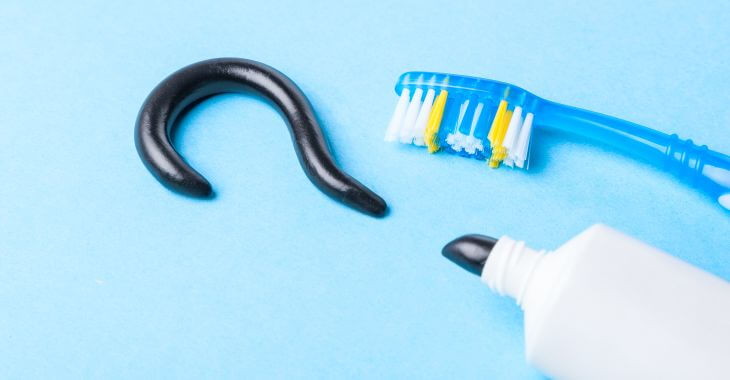How Soon Can You Talk After Wisdom Teeth Removal?

Wisdom teeth removal, also known as third molar extraction, is a common dental procedure performed to address issues such as impaction, overcrowding or infection associated with these teeth. While the surgery itself is common, many people wonder, “How soon can you talk after wisdom teeth removal?
The wisdom teeth removal recovery process can vary from person to person, with one of the most common concerns being how soon one can talk comfortably after the procedure. There are factors that influence speech and overall recovery after wisdom teeth removal.
Understanding Wisdom Teeth Removal
Before delving into the recovery timeline for speech after wisdom teeth removal, it is essential to understand the nature of the procedure itself. Wisdom teeth are the last set of molars to emerge in the mouth, typically appearing between the ages of 17 and 25.
In many cases, wisdom teeth can become impacted, meaning they are unable to fully erupt through the gum line due to lack of space or improper alignment. Impacted wisdom teeth can lead to various dental problems, including pain, swelling, infection, and damage to adjacent teeth.
Wisdom teeth removal is often recommended to address these issues and prevent potential complications. The procedure is typically performed under local anesthesia, sedation or general anesthesia, depending on the complexity of the case and the preferences of the patient and dentist.
During the surgery, the dentist or oral surgeon will make an incision in the gum tissue, remove any bone blocking access to the tooth, and extract the wisdom tooth or teeth. After the teeth are removed, the surgical site is cleaned, and the incisions are sutured closed.
Factors Influencing Speech Recovery
If you wonder, “Can you talk after wisdom teeth removal?” it may depend on the type of procedure you have and other considerations. Several factors can influence how soon you can talk comfortably after wisdom teeth removal, including:
Type of Anesthesia
The type of anesthesia used during the procedure can impact speech recovery.
General anesthesia and deep sedation can cause grogginess, drowsiness and temporary impairment of speech immediately after the surgery. Local anesthesia or light sedation may allow for quicker recovery of speech function.
Complexity of the Procedure
The complexity of the wisdom teeth removal procedure can affect the extent of swelling, discomfort and difficulty speaking afterward. More extensive surgeries involving multiple teeth or impacted wisdom teeth may require a longer recovery period.
Individual Healing Response
Every individual’s healing response is unique, and factors such as age, overall health and immune function can influence the speed and efficiency of the healing process. Some people may experience faster recovery and return to normal speech function sooner than others.
Postoperative Care
Following the postoperative instructions provided by your dentist or oral surgeon is crucial for promoting optimal healing and minimizing complications. Proper wound care, pain management and adherence to dietary recommendations can all impact the speed of recovery, including speech recovery.
Timeline for Speech Recovery
While the timeline for speech recovery after wisdom teeth removal can vary, most people can expect to regain normal speech function anywhere from within a day to as much as a week following the procedure. Here is a general timeline of what to expect:
Immediate Postoperative Period (Day 1-2)
Immediately after the surgery, you may experience some degree of swelling, discomfort and difficulty speaking due to the effects of anesthesia and the presence of gauze packs in the mouth. It is normal to have some slurring or difficulty enunciating words during this time.
First Few Days (Day 3-5)
Swelling and discomfort typically peak within the first 48 hours after surgery and gradually subside over the next few days. As swelling decreases and oral sensation returns, speech may become easier and more comfortable.
First Week (Day 6-7)
By the end of the first week, most of the swelling and discomfort should have resolved, and speech should return to near-normal levels. However, it’s essential to continue following postoperative instructions and avoid activities that could disrupt the healing process.
Tips for Comfortable Speech Recovery
While your mouth is healing after wisdom teeth removal, there are several tips and strategies you can use to promote comfortable speech recovery:
- Take It Slow: Speak slowly and enunciate your words carefully to avoid straining your mouth or jaw muscles.
- Stay Hydrated: Drink plenty of fluids to keep your mouth moist and prevent dehydration, which can exacerbate discomfort and dryness.
- Use Ice Packs: Apply ice packs to the outside of your face in the first 24-48 hours after surgery to reduce swelling and numbness, which can improve speech comfort.
- Avoid Straws: Refrain from using straws or engaging in activities that create suction in the mouth, as this can dislodge blood clots and delay healing.
- Stick to Soft Foods: Stick to a soft diet consisting of smoothies, soups, yogurt, and mashed potatoes in the first few days after surgery to minimize discomfort and facilitate healing.
- Practice Gentle Oral Hygiene: Follow your dentist’s recommendations for gentle oral hygiene practices to keep the surgical site clean and free of infection.
While some degree of discomfort and difficulty speaking is normal after wisdom teeth removal, there are certain symptoms that warrant immediate medical attention, including severe or worsening pain that is not relieved by prescribed pain medication, excessive bleeding, or difficulty swallowing.
If you experience any of these symptoms, contact your dentist or oral surgeon promptly for further evaluation and treatment.

Speech recovery after wisdom teeth removal is a gradual process that varies from person to person. While some degree of swelling, discomfort and difficulty speaking is normal in the immediate postoperative period, most people can expect to regain normal speech function within a few days.
The information provided on this website, including text, graphics, images, and other materials, is intended solely for informational purposes and should not be used as a substitute for professional medical advice, diagnosis, or treatment.




)